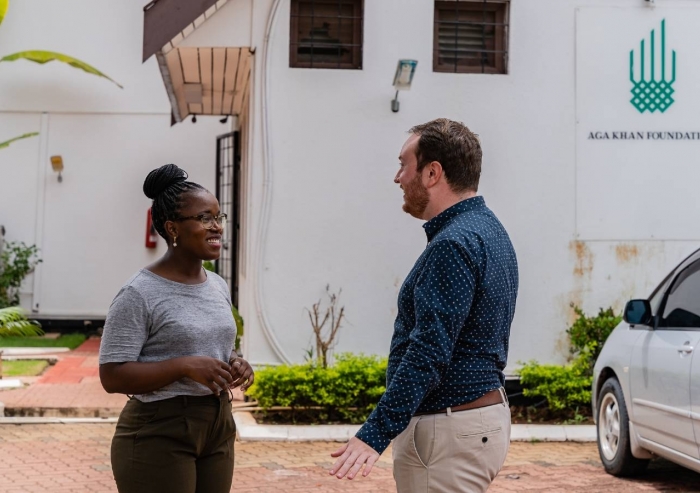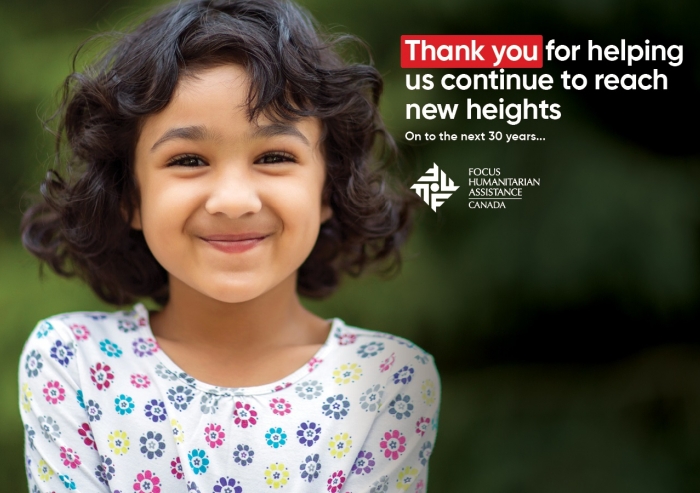“In a world of rapid change, an agile and adaptable mind, a pragmatic and cooperative temperament, a strong ethical orientation - these are increasingly the keys to effective leadership. And I would add to this list a capacity for intellectual humility which keeps one’s mind constantly open to a variety of viewpoints and which welcomes pluralistic exchange.”
Why does Mawlana Hazar Imam believe lifelong learning is important?
Both Mawlana Hazar Imam and Mawlana Sultan Mahomed Shah, in keeping with their ancestral heritage, have greatly encouraged and continue to promote learning and scholarship among Ismailis, Muslim communities, and within humanity at large. Mawlana Hazar Imam says that in today’s rapidly changing world, the best way for the Jamat to prepare for unpredictability and change is education.
At the Foundation Ceremony for the Aga Khan University’s Graduate School of Media and Communications, Nairobi, Kenya, Mawlana Hazar Imam said in 2011:
“The most important thing we can learn - or teach - at any School - in a world of perpetual change - is the ability to go on learning. None of us have all the answers - quite often we don’t even know what questions to ask. Nor can we discern the road ahead by looking in a rear-view mirror. Past lessons must constantly be renewed and reapplied, as we adapt to new technologies and new expectations.”
How does early childhood development support lifelong learning?
Science has shown that the human brain starts developing before birth and continues into adulthood. Studies show that unborn babies can actually perceive the mood and sentiment of their mothers, and in many cases, of the people and environment around them.
Early childhood experiences also affect the quality of the architecture of the brain by establishing either a sturdy or a fragile foundation for all of the learning, health and behaviour, which follow. As the human brain is most flexible early in life, what we expose our children to in their early years remains with them as permanent markers of their identity as the brain assumes more complex functions into adulthood. The religious, emotional and physical health, and social skills that emerge in the early years are all important prerequisites for success in school and later in the workplace and community.
Mawlana Hazar Imam spoke about the importance of early childhood development at the 25th anniversary of the Madrasa Early Childhood Development Programme in Kenya in 2007:
“But we sometimes give too little attention to the schools which prepare young children for life itself - in all of its holistic dimensions. And yet the evidence accumulates steadily showing that an investment made in the earliest, pre-school years can bring enormous dividends as a child proceeds from one level of education to another.”
What is Mawlana Hazar Imam’s Vision for Education?
As one of the Diamond Jubilee objectives, Mawlana Hazar Imam has indicated his desire that there be 100% access to Early Childhood Education for the global Jamat. He wants to ensure that for every Ismaili child, key developmental milestones are met in the important stages of childhood, in the areas of nutrition, health, personal and social development, along with their moral and religious education starting from birth.
In addition, it is the vision of Mawlana Hazar Imam that the Jamat understand the importance of the role of intellect in our lives, even when we are 110 years old, whilst keeping ourselves mentally agile through lifelong education. Thus, each one of us can live our faith fully and contribute to the rapidly evolving knowledge society that we live in.
References
The references below are provided to help you to learn more about Mawlana Hazar’s Imam Vision for Education and Early Childhood Development:
3. Mawlana Hazar Imam’s Vision for the Aga Khan Academies
4. Video: AKDN: Preschool to University
5. Centre on the Developing Child, Harvard University, (2007). The Science of Early Childhood Development: Closing the Gap Between What We Know and What We Do. National Scientific Council on the Developing Child. http://www.developing.net/
6. Evans, J. (2000). Early Childhood Counts: A programming guide on early childhood care for development. Washington, DC. The World Bank.
7. Irwin, LG., Siddiqui, A. & Hertzman, C (2007). Early Child Development: A Powerful Equaliser. Final report prepared for the WHO’s Commission on Social Determinant of Health.
8. Jamieson, J., Bertrand, J. & Ibrahim, E. (Eds.). (2008). The Science of Early Child Development. Online resource. Winnipeg, MB: Red River College. http://www.scienceofecd.com/
9. Pardhan, A (2010). Investing in early child development (ECD): The important role of families. The Ismaili Pakistan.
10. Article: Early Childhood Development Opens New Horizons for Ismaili Children in Asia and Africa












